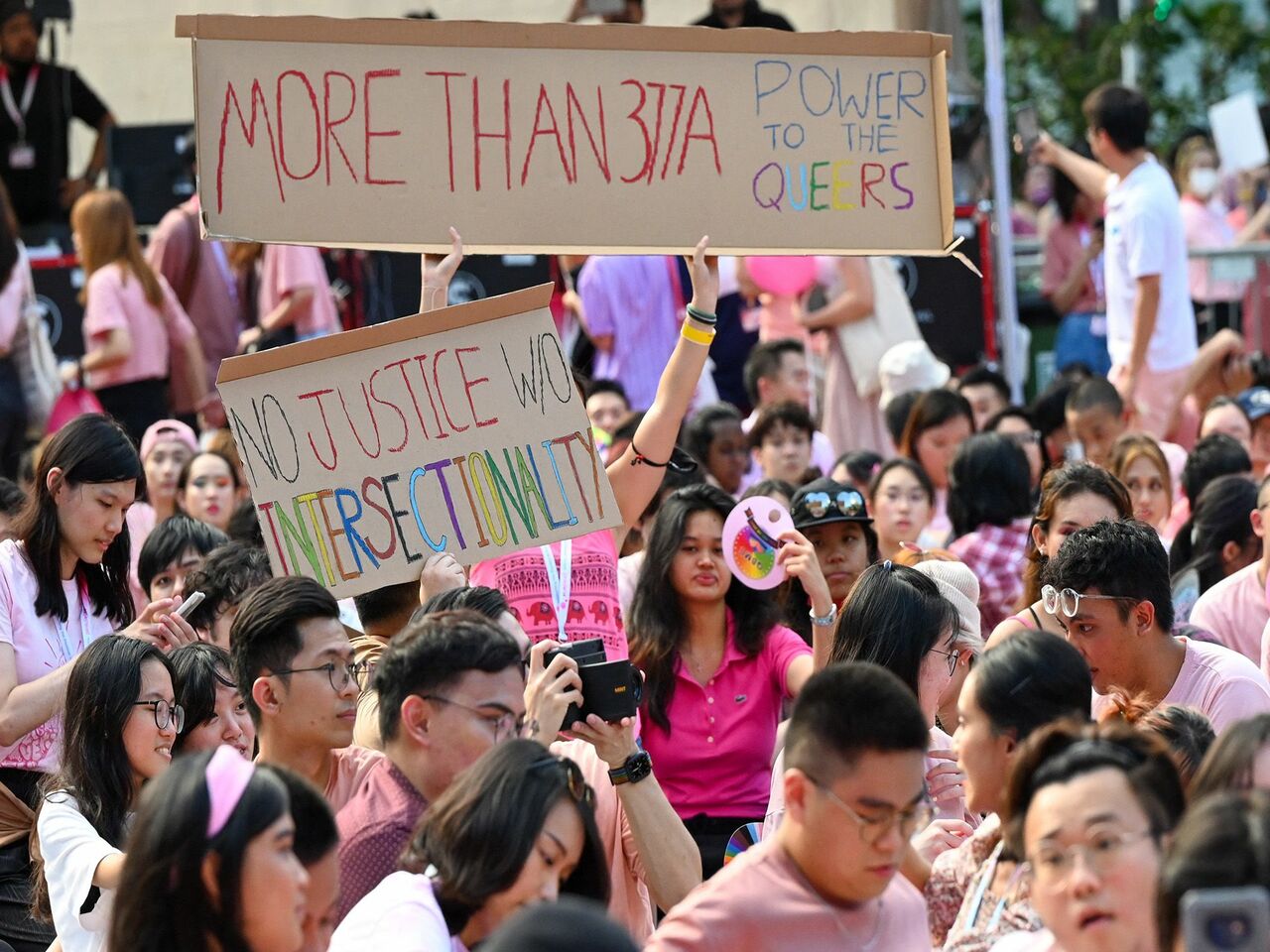Singapore Repeals Law Against Sex Between Men But Still Opposes Marriage Equality
 Thirsty for JUICE content? Quench your cravings on our Instagram, TikTok and WhatsApp
Thirsty for JUICE content? Quench your cravings on our Instagram, TikTok and WhatsApp

While decriminalising male to male sex, Singapore’s legislators modified the constitution to essentially prevent complete marriage equality.
Although the regulation was not aggressively implemented, sex between men was punishable by up to two years in prison under a British colonial law. The law has long faced criticism for being insulting, demeaning and discriminatory toward the LGBTQ+ population.
The decision by the parliament comes after earlier legal challenges against the law’s repeal were unsuccessful.

Members of the the LGBTQ+ community in Singapore have reportedly breathed a sigh of relief, some noting that they felt privileged to be able to witness “the birth of a new chapter in the history of Singapore’s LGBT community”.
On Tuesday, the Singaporean parliament also approved a constitutional amendment that strengthens the current definition of marriage as a union between a man and a woman. This effectively ends the possibility of future legal challenges that would grant LGBTQ+ persons equal rights to marriage.
In a Facebook post late Tuesday, Prime Minister Lee Hsien Loong congratulated all parties for exercising calm and lauded the dual actions as “a great milestone for Singapore.”

In order to create a “national consensus on the route forward” on a contentious issue, he claimed it had required months of “countless discussions” involving thousands of people.
The current definition of marriage, according to law minister K. Shanmugam, needs to be safeguarded because removing it might have forced the heterosexual social system to be questioned as well. He claimed that changing the definition of marriage would jeopardise all government programmes based on the traditional framework, including those for housing and healthcare.
Tuesday’s deliberations came to a close with Shanmugam asserting that repealing the law was “the appropriate thing to do” since there were “no public issues that warrant the criminalisation of private, consensual sex between men.”
Whereas Masagos Zulkifli, the minister for social and family development, whose office put the constitutional amendment on the table, declared that the conventional concept of the family was the cornerstone of society and that expanding it to include same-sex marriage was not on the agenda at the moment.

According to a 2020 report by the International Lesbian, Gay, Bisexual, Trans and Intersex Association, homosexuality is outlawed in 69 nations, including 11 where it is capital offence.
Sodomy is illegal in Malaysia, and is still broadly defined to include both heterosexual and homosexual acts.
Penalties include fines, caning, and prison terms of up to twenty years.
Men who are found guilty of “gross indecency with another male individual” are subject to further penalty under the Criminal Code. Muslim citizens may also be charged in particular Islamic courts in addition to the secular law, while foreigners who break this law risk deportation.


 Get Audio+
Get Audio+ Hot FM
Hot FM Kool 101
Kool 101 Eight FM
Eight FM Fly FM
Fly FM Molek FM
Molek FM

